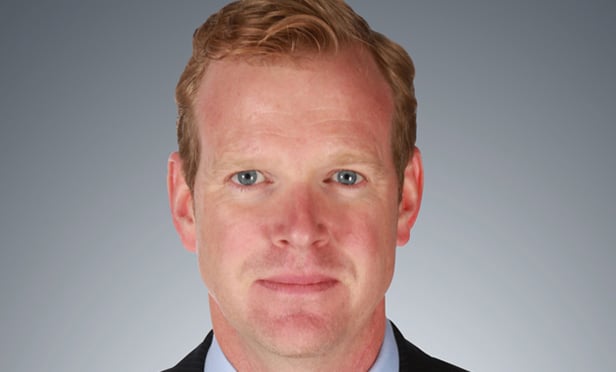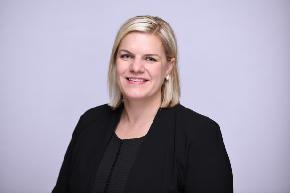 James Nelson
James Nelson
NEW YORK CITY—W. Chan Kim and Renee Mauborgne authored an international bestseller, Blue Ocean Strategy – How to Create Uncontested Market Space and Make the Competition Irrelevant. From page one, this book grabbed my attention, specifically with how this could transform the real estate brokerage industry. In my mind, our industry has been largely unchanged since its creation. We have all become more sophisticated and specialized, but the way most brokers conduct business is almost identical at least from when I started in the business over 20 years ago.
The premise of the book is that in most industries, competitors more or less work in the same way, rendering them virtually indistinguishable from the client. As a result, they can only compete on service and fees. This causes profitability to compress and services to be spread too thin. As a result, the water becomes red with blood from competition.
The first example the book gives is in the circus industry. For over 100 years, Ringling Bros. and Barnum & Bailey Circus had virtually a monopoly, but other circus acts came along chipping away at their livelihood. Ringling fought back doubling down on what they had done and paying more and more for talented performers even if it meant at a loss, to try and eliminate the competition. This, of course, never worked as they eventually ceased to exist.
In 1984, Cirque Du Soleil came on to the scene. They recognized all the attributes of a circus that people loved – the intrigue, the drama, the acrobats, but decided to shift this to an entirely new audience and venue. They decided that they would never win by selling $10 tickets, “caring” for animals, or selling concessions to kids. Instead, they transformed the circus into a dinner theater, where they could charge a much higher ticket price to an entirely new adult demographic. As a result, they created a Blue Ocean strategy and are now an international sensation.
I have been at effectively the same brokerage firm for my entire 20-year career. I have worked with wonderful people both on a regional and global platform. I am leaving with nothing but wonderful things to say, but in my mind, I knew there was a different way to approach the business. The first thing was to do an intensive off-site with a business coach. My marketing coach, Rod Santomassimo, said that brokers spend too much time working in their business on the transaction treadmill looking for the next deal than taking a step back and working on the actual business. When I set out to create a Blue Ocean Strategy (I didn’t know such a thing existed at the time), Rod suggested that I work with Blaine Strickland from HBS Resources to develop a strategic plan.
Ultimately that plan was to build a fully integrated investment sales team that covered the NY Metro area with specialties in the multi-family, office, retail and development space as well as building out a buy side NNN group to secure clients with exchange opportunities. The plan had to be focused on the client first. If not, it was bound to fail.
I had the chance to discuss how a Blue Ocean Strategy can be applied to the real estate industry with Mark Rose, the CEO of Avison Young.
James Nelson: Can you explain to us how your professionals work together for the best interest of the clients?
Mark Rose: We have something called affinity groups, but we’ve now actually built it into enterprise building, where partners are leading together to foster the overall collaboration that we’ve built. It can only be done inside a partnership model. And it can only be done in a privately-held company model. Each and every person has financial, operational and reputational accountability, not just to the clients but to each other since we all own the company together.
James Nelson: Agreed. So after we determined our investment sales group’s focus, the question was how we could create a Blue Ocean Strategy to execute this plan. We came up with five approaches which we believe will revolutionize the industry:
- A Coordinated, Full-Service Client First Approach Almost all full-service firms are siloed when it comes to sales, leasing and financing. Depending on who an owner reaches out to first, that service professional will likely steer them towards their specialty. We believe that a broker should be completely agnostic to the ultimate outcome. If the client wins, so does the broker. For example, even if an owner comes into an office looking to sell, if that is not the best decision for them at the time, the broker should advise against it and provide other options.Mark Rose: What’s making a difference and why we’re taking so much market share is that when you can take a long-term view and you have a collection of people who culturally have committed to taking a longer-term view to the clients’ success, to each other’s success, and they’re doing it together, at that core, you almost cannot fail.
- James Nelson: Team Approach Exactly. I have always believed that when one of my team members wins, we all win. That’s why every agent on my team cooperates on every transaction while receiving bonuses for origination. I have never had to do business in a “locked desk drawer environment.” If you have team members who are all pulling in the same direction, we can do so much more for our clients. For this reason, I have also decided to do away with “Team Nelson” as is no longer just my show. In its place, we have directors, associate directors, and associates heading asset groups representing the collective Tri-State Investment Sales Team.
- Territory vs. Asset Class I spent 20 years working on a territory approach which is helpful to know the ins and outs of every block and to be on the frontier of any changes such as re-zoning, retail rents, etc. Although that is one option, our team will focus on exclusive seller rep with asset class specialization. Especially in the last five years, I have seen that investors don’t just focus on one neighborhood, they focus within larger areas. If you spend your career working within a microscope looking at just one area, you’ll miss trends that are happening citywide. That being said, each asset class is very complex especially in NYC and it is very difficult to be an expert across sectors in areas such as rent regulation and inclusionary air rights.
- Leveraging Technology Besides Outlook and CRMs, most brokers don’t use technology to maximize efficiency and have a better targeted approach. I have begun to study the field of predicative analytics very closely. Credit card companies were the first to utilize these analytics to predict when fraudulent charges were made. Today, even Colgate-Palmolive uses predicative analytics to determine who best to target while selling toothpaste. I don’t want to give away all of the secret sauce, but needless to say there is a ton of data that exists out there today and brokers should be leveraging it to best serve their clients.Mark Rose: At Avison Young, we are building within the organization the ability to innovate and potentially invest, disrupt and invest again, because there’s almost too much technology, some of which cannot survive, some of it is really good, most of it will be replaced by better technology year after year. And with everything we do, you’re going to see ruthless execution.
- James Nelson: Share core values Okay, so there might not be a Blue Ocean here, but in building any business, the team and our clients must have shared values. Blaine suggested the book Traction by Gino Wickman and it has been a game changer. This expands on Jim Collins “Good to Great” of getting the right people in the rights seats on the bus. My team has to embody several traits consisting of integrity, hard work and expert knowledge.
Mark Rose: To expand on that a bit, something that is crucial to Avison Young is culture. Culture means you actually support employees having the right traits and values to be leaders, you actually believe in your people, when folks are in need you help them out, and when great things happen, you celebrate them. This structure has allowed people to believe in people again.
With these five key differentiators established, the most important decision for me was to decide the best firm to implement this vision. For me, partnering with Avison Young, a global full-service firm with 82 offices worldwide, was the right one. This strategy is fully aligned with their mission. We look forward to swimming with you in this new Blue Ocean.
The views expressed are those of the author and not ALM Real Estate Media.

















 Copyright © 2024 ALM Global, LLC. All Rights Reserved.
Copyright © 2024 ALM Global, LLC. All Rights Reserved.